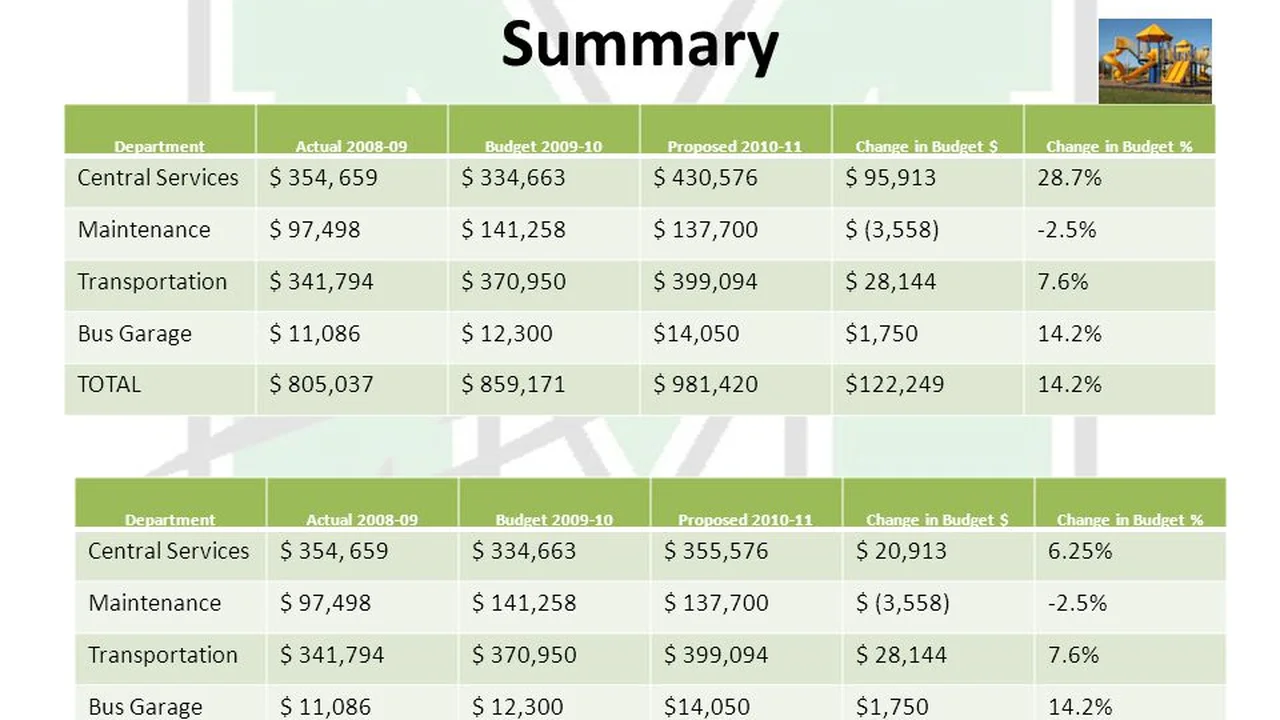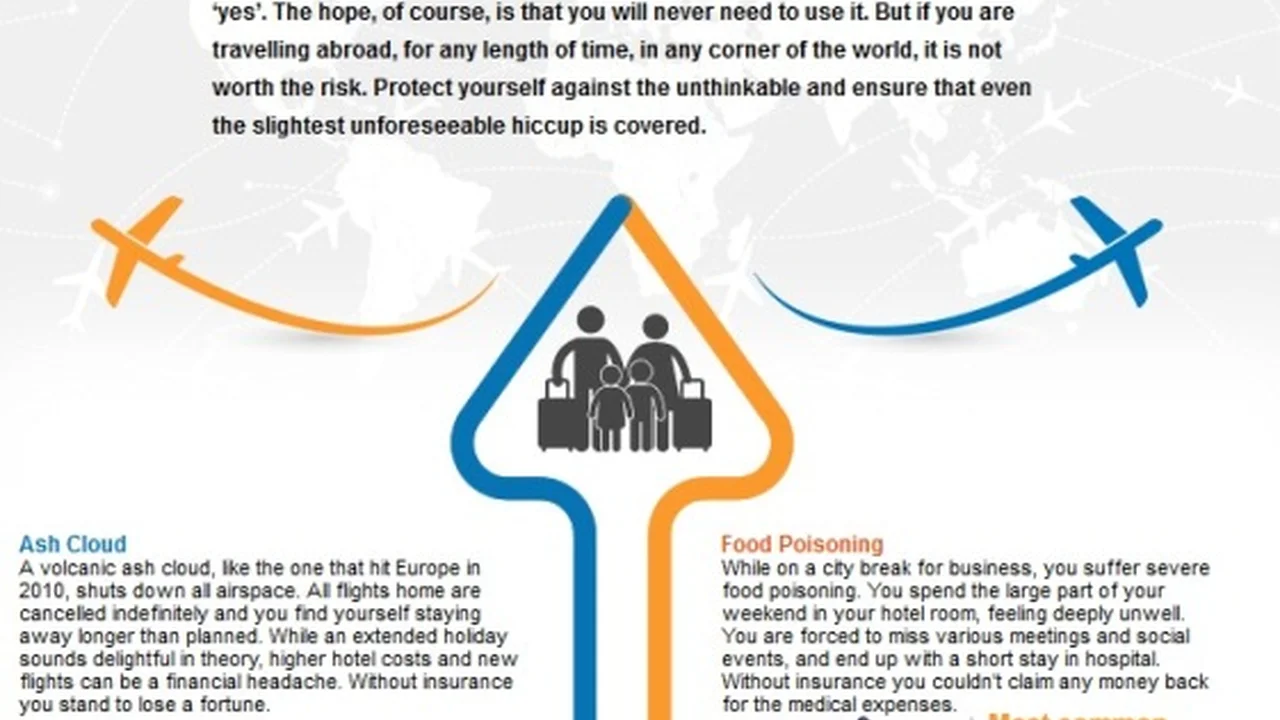Ground Transportation Policy for Budget Efficiency
Optimizing ground transportation rules within your travel policy to reduce costs and improve efficiency.

Ground Transportation Policy for Budget Efficiency
Understanding Ground Transportation Policy Essentials
When we talk about business travel, flights and hotels often grab the spotlight. But let's be real, how your team gets around on the ground can significantly impact your budget and their overall experience. A well-thought-out ground transportation policy isn't just about cutting costs; it's about ensuring safety, convenience, and efficiency. Think about it: a smooth ride from the airport to a client meeting sets a positive tone, while a chaotic, expensive taxi ride can start things off on the wrong foot. This section will break down the core components you need to consider when building or refining your ground transportation policy.
First off, clarity is king. Your policy needs to be crystal clear about what's allowed, what's preferred, and what's absolutely off-limits. Are employees expected to use public transport for short distances? Is ride-sharing acceptable? What about rental cars, and under what circumstances? Defining these parameters upfront avoids confusion and unexpected expenses down the line. It also empowers your employees to make smart choices without constantly needing to seek approval.
Secondly, consider the different modes of transport. This isn't a one-size-fits-all situation. Depending on the destination, duration of stay, and purpose of travel, different options will make more sense. For instance, in a dense urban environment like New York City, public transport or ride-sharing might be far more efficient and cost-effective than a rental car. Conversely, for a multi-day trip with several client visits spread across a suburban area, a rental car could be the most practical choice. Your policy should provide guidelines for each scenario, perhaps even suggesting preferred options based on typical travel patterns.
Finally, don't forget about the 'why.' Communicate the rationale behind your policy. When employees understand that the policy is designed to optimize resources, ensure their safety, and streamline their travel, they're far more likely to adhere to it. It's not just about rules; it's about fostering a culture of responsible spending and efficient travel.
Comparing Ground Transportation Options for Business Travel
Let's dive into the nitty-gritty of the various ground transportation options available and how they stack up in terms of cost, convenience, and control. Understanding these differences is crucial for crafting a flexible yet budget-conscious policy.
Rental Cars for Business Trips
Rental cars offer unparalleled flexibility, especially for trips involving multiple stops or locations not easily accessible by public transport. They give your employees the freedom to move on their own schedule. However, they come with their own set of costs: rental fees, fuel, parking, and potential insurance add-ons. Your policy should specify preferred rental car companies (often with corporate discounts), car classes allowed (e.g., economy or mid-size unless a specific business need dictates otherwise), and clear guidelines on fuel reimbursement. For instance, 'return with a full tank' is a common and effective policy.
Ride-Sharing Services for Corporate Travel
Services like Uber and Lyft have revolutionized urban transportation. They're convenient, often cheaper than traditional taxis, and provide easy expense tracking through their apps. Your policy should address the use of these services, perhaps setting limits on surge pricing or encouraging the use of business profiles for easier reconciliation. For example, you might stipulate that 'premium' ride-sharing options (like Uber Black) are only allowed for senior executives or specific client-facing scenarios. The key here is balancing convenience with cost control.
Public Transportation for Business Commutes
In many major cities, public transportation (subways, buses, trains) is the most economical and often the fastest way to get around. Encouraging its use, especially for short distances or travel within city centers, can lead to significant savings. Your policy could recommend or even mandate public transport for certain routes or distances, provided it's safe and practical. Consider providing employees with information on how to access and use public transport in common travel destinations.
Traditional Taxis and Limousines for Corporate Clients
While often more expensive, traditional taxis and limousines still have their place, particularly for executive travel, client entertainment, or when carrying significant luggage. Limousine services can offer a more professional and comfortable experience for VIPs. Your policy should clearly define when these options are permissible, perhaps linking them to specific roles or trip purposes. For instance, 'limousine service is approved for airport transfers for C-suite executives or for client pick-ups.' Transparency here is vital to prevent misuse.
Company Vehicles and Fleet Management
If your company maintains a fleet of vehicles, your ground transportation policy will need a dedicated section for their use. This includes rules on maintenance, fuel cards, personal use (if allowed), and accident reporting. Clear guidelines ensure proper care of company assets and compliance with legal requirements.
Implementing Cost-Saving Strategies in Ground Transportation
Now that we've explored the options, let's talk about actionable strategies to bake cost savings directly into your ground transportation policy. It's not just about choosing the cheapest option; it's about smart planning and leveraging technology.
Preferred Vendor Programs and Corporate Discounts
One of the most effective ways to save is by establishing preferred vendor relationships. Negotiate corporate rates with rental car companies (Hertz, Enterprise, Avis), ride-sharing platforms (Uber for Business, Lyft Business), and even local taxi or limousine services in frequently visited cities. These agreements can offer significant discounts, streamlined billing, and sometimes even dedicated customer support. Your policy should then mandate or strongly encourage the use of these preferred vendors.
Setting Clear Spending Limits and Tiers
Don't just say 'be reasonable.' Define what 'reasonable' means. Implement clear spending limits for different types of ground transportation based on location and duration. You might have different tiers for executives, managers, and general employees. For example, 'rental cars limited to economy or compact class unless traveling with more than two colleagues or significant equipment.' For ride-sharing, 'standard ride-sharing services are preferred; premium services require prior managerial approval.'
Encouraging Public Transport and Walking
Actively promote the use of public transportation and even walking for short distances. This isn't just about saving money; it's also often more environmentally friendly and can be a great way for employees to experience a new city. Your policy could include a clause like, 'For distances under 2 miles in urban areas, walking or public transport is encouraged where safe and practical.' Consider providing employees with resources like city transit maps or apps.
Optimizing Rental Car Usage and Fuel Policies
Beyond corporate discounts, optimize rental car usage. Encourage employees to refuel before returning the car to avoid inflated gas station charges from the rental company. Your policy should explicitly state this. Also, consider policies around carpooling for team travel to conferences or events, reducing the number of rental vehicles needed.
Leveraging Technology for Expense Tracking and Compliance
This is where technology truly shines. Integrating your ground transportation policy with an expense management system is a game-changer. Platforms like Expensify, SAP Concur, and Rydoo can automate expense reporting, enforce policy rules in real-time, and provide valuable data insights.
Recommended Ground Transportation Management Solutions
Let's look at some specific tools and platforms that can help you implement and manage your ground transportation policy effectively. These aren't just expense trackers; they're comprehensive solutions designed to streamline the entire process.
1. SAP Concur Travel & Expense
Overview: SAP Concur is a giant in the travel and expense management space, offering an integrated suite that covers everything from booking to expense reporting. Its ground transportation features are robust, allowing for policy enforcement at the point of booking or expense submission.
Key Features:
- Integrated Booking: Employees can book rental cars, ride-shares (via integrations), and even some public transport options directly through the Concur platform, ensuring policy compliance from the start.
- Policy Enforcement: Set up rules for car class, rental duration, preferred vendors, and spending limits. The system can flag out-of-policy bookings or expenses for review.
- Expense Reporting: Automated receipt capture (e.g., via mobile app or email forwarding) and categorization make expense reporting a breeze.
- Analytics & Reporting: Gain deep insights into ground transportation spending, identify trends, and pinpoint areas for further cost savings.
- Integrations: Connects with major rental car companies, ride-sharing apps (e.g., Uber for Business), and corporate credit card providers.
Use Cases: Ideal for medium to large enterprises with complex travel needs and a desire for a single, integrated platform for all travel and expense management.
Pricing: Subscription-based, typically tiered based on the number of active users or transactions. Pricing is customized and requires direct contact with SAP Concur sales. Expect a significant investment, but with potential for substantial ROI through efficiency and savings.
2. Expensify
Overview: Expensify is known for its user-friendly interface and powerful SmartScan technology, which automates receipt processing. While not a full-fledged booking tool, it excels at managing and enforcing ground transportation expenses post-booking.
Key Features:
- SmartScan: Employees simply snap a photo of a receipt (e.g., taxi, parking, public transport ticket), and Expensify automatically extracts the data, categorizes it, and matches it to credit card transactions.
- Policy Rules: Set up custom rules for ground transportation expenses, such as maximum spend per ride, preferred vendors, or requiring justification for certain types of transport.
- Automated Approvals: Configure multi-level approval workflows based on expense type or amount, ensuring managers review out-of-policy spending.
- Corporate Card Reconciliation: Seamlessly integrates with corporate credit cards, making reconciliation of ground transport charges straightforward.
- Integrations: Connects with accounting software (QuickBooks, Xero, NetSuite) and various travel platforms.
Use Cases: Excellent for small to medium-sized businesses looking for an intuitive, mobile-first solution for expense management, particularly strong for companies where employees frequently use personal cards for ground transport and need easy reimbursement.
Pricing: Offers various plans, including a Free plan for individuals. Business plans start around $5 per active user per month for basic features, scaling up for more advanced functionalities like custom policy rules and integrations. Enterprise pricing is custom.
3. Rydoo
Overview: Rydoo (formerly Xpenditure) is another strong contender in the expense management space, focusing on simplifying the entire process from receipt to reimbursement. It offers good capabilities for managing ground transportation costs.
Key Features:
- Digital Receipt Capture: Similar to Expensify, Rydoo allows for easy capture of receipts via its mobile app, automating data entry.
- Policy Compliance: Define granular policy rules for ground transportation, including limits, preferred vendors, and required fields. The system can automatically flag non-compliant expenses.
- Real-time Insights: Dashboards provide real-time visibility into spending patterns, helping identify areas where ground transport costs might be spiraling.
- Mileage Tracking: For employees using personal vehicles, Rydoo offers integrated mileage tracking, ensuring accurate and compliant reimbursement.
- Global Capabilities: Supports multiple currencies and tax regulations, making it suitable for companies with international ground transportation needs.
Use Cases: Well-suited for companies of all sizes, particularly those with a global footprint, looking for a user-friendly and efficient expense management solution with strong policy enforcement capabilities.
Pricing: Subscription plans typically start around $7-10 per user per month, with custom pricing for enterprise solutions that include advanced features and integrations.
4. Uber for Business / Lyft Business
Overview: These aren't full expense management systems, but dedicated platforms from the ride-sharing giants themselves, designed specifically for corporate use. They allow companies to manage employee rides, set policies, and centralize billing.
Key Features:
- Centralized Billing: All employee rides are billed to a single company account, simplifying reconciliation.
- Policy Controls: Set rules for ride types (e.g., UberX only, no Uber Black), spending limits per ride, and allowed pick-up/drop-off locations.
- Reporting: Access detailed reports on employee ride activity, spending, and compliance.
- Employee Profiles: Employees link their personal accounts to the business profile, making it easy to switch between personal and business rides.
- Vouchers & Programs: Create custom programs for specific events, client travel, or employee commutes.
Use Cases: Essential for any company whose employees frequently use ride-sharing services for business travel. They provide direct control and visibility over a significant portion of ground transportation spend.
Pricing: Generally free to set up an account. You only pay for the rides taken, at standard Uber/Lyft rates, plus any applicable business service fees (which are often minimal or included for larger volumes).
5. Corporate Travel Management (CTM) Platforms (e.g., Egencia, TripActions)
Overview: While primarily focused on air and hotel, many comprehensive Corporate Travel Management (CTM) platforms also offer robust ground transportation booking and policy enforcement. They act as an all-in-one solution.
Key Features:
- Integrated Booking: Book rental cars, airport transfers, and sometimes even ride-shares directly within the platform.
- End-to-End Policy Enforcement: Apply your travel policy across all aspects of a trip, including ground transport, from booking to expense.
- Duty of Care: Track employee locations during ground travel for safety and emergency response.
- Supplier Integration: Pre-negotiated rates with a wide range of ground transportation providers.
- Reporting & Analytics: Comprehensive reporting on all travel spend, including ground transport.
Use Cases: Best for larger organizations seeking a holistic approach to travel management, where ground transportation is just one piece of a larger, integrated travel program.
Pricing: Highly variable, typically based on transaction volume, number of users, and the specific modules or services utilized. Requires a custom quote from the provider.
Crafting a Future-Proof Ground Transportation Policy
The world of transportation is constantly evolving. From electric vehicles to autonomous cars, new options are emerging. Your ground transportation policy shouldn't be a static document; it needs to be adaptable and forward-thinking. Here's how to ensure it remains relevant and effective.
Regular Review and Updates for Ground Travel Policy
Schedule annual or bi-annual reviews of your policy. Are the preferred vendors still offering the best rates? Have new, more efficient transportation options become available in key travel destinations? Are employees finding certain aspects of the policy cumbersome? Gather feedback from travelers and travel managers to identify areas for improvement. The goal is continuous optimization, not just setting it and forgetting it.
Incorporating Sustainability into Ground Transportation
More and more companies are prioritizing sustainability. Your ground transportation policy can play a significant role here. Encourage the use of electric or hybrid rental cars where available, promote public transport, and even consider incentives for carpooling. You could also partner with ground transportation providers that have strong sustainability initiatives. This isn't just good for the planet; it can also enhance your company's brand image.
Addressing Employee Safety and Well-being on the Ground
Safety should always be paramount. Your policy needs to address safety considerations for all modes of ground transport. This includes guidelines on choosing reputable ride-sharing drivers (e.g., checking license plates), avoiding unsafe areas, and what to do in case of an accident or breakdown. For rental cars, ensure employees understand insurance coverage and emergency procedures. A clear duty of care statement within your policy reassures employees that their well-being is a priority.
Flexibility and Employee Empowerment in Ground Travel
While rules are necessary, too much rigidity can stifle productivity and frustrate employees. Build in a degree of flexibility. For instance, allow for exceptions with proper justification and approval. Empower employees to make smart, cost-effective decisions within the policy framework rather than micromanaging every single ride. When employees feel trusted, they're more likely to be responsible.
Communication and Training for Ground Transportation Policy
A great policy is useless if no one knows about it or understands it. Clearly communicate your ground transportation policy to all employees who travel. Use multiple channels: internal memos, dedicated training sessions, and easily accessible online resources. Provide examples of compliant and non-compliant scenarios. The more informed your employees are, the smoother the implementation will be.
By focusing on these areas, you can create a ground transportation policy that not only drives significant budget efficiencies but also supports your employees, enhances their travel experience, and aligns with your broader corporate values. It's about smart choices, leveraging the right tools, and fostering a culture of responsible and efficient business travel.
:max_bytes(150000):strip_icc()/277019-baked-pork-chops-with-cream-of-mushroom-soup-DDMFS-beauty-4x3-BG-7505-5762b731cf30447d9cbbbbbf387beafa.jpg)






